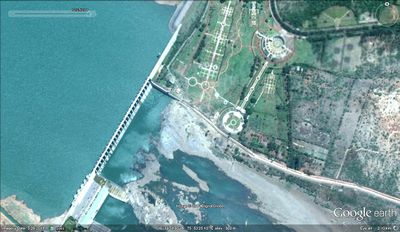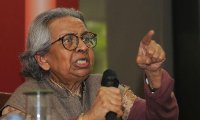Portal:Social Science
| Philosophy of Social Sciences |
Social Science
Social Sciences encompass all those concerns that involve society, interactions within individuals in the society, interactions between societies and interactions with the physical environment. As a subject in schools, social sciences will draw from the academic disciplines of history, geography, political science, economics and sociology. Integrating different academic disciplines into a meaningful school curriculum poses unique opportunities and challenges. Social sciences open up the possibility for the education process to engage with the context of the child and the community and the content areas and skills can be developed through this context. This could allow the child to see the school and the interdisciplinary nature of learning and the school itself as a relevant space for engaging with their proximate issues. The challenges of the curriculum are also centered along these same areas. If the curriculum is not sensitively designed or delivered, the social science classes may simply remain the reiteration of the social contexts or problems. If the curriculum is not inclusively designed this will create and strengthen stereotypes and exclusions. A social science teacher thus has to move beyond the content areas and examine critically the processes of society, school and learning.
People and Places
The Almatti Dam is the main reservoir of the Upper Krishna Irrigation Project; the 290 megawatt (MW) power project is located on the right side of the Almatti Dam. The facility uses vertical kaplan turbines: five 55MW generators and one 15MW generator. Water is released in to the Narayanpur reservoir after using for power generation to serve the downstream irrigation needs.
During the initial stages of the project, estimated costs were projected as Rs.14.70 billion, but following the transfer of project's management to the Karnataka Power Corporation Limited (KPCL), the estimated cost was reduced by over fifty percent to Rs. 6.74 billion. The KPCL eventually completed the project at an even lower cost of Rs. 5.20 billion.[citation needed] The entire dam was finished in less than forty months, with construction ending in July 2005. The dam is located on the edge of Bijapur and Bagalkot districts. Geographically, it is located in the Bijapur district,[3] but large areas of Bagalkot district have also been submerged due to filling of the reservoir.[citation needed] The dam holds a gross water storage capacity of 130 TMC at 519 meters MSL.
Eminent People
Articles by Teachers
Please click here for a blog by one of our teachers Ravi Aheri, GHS Konanakeri, Shiggaon, Haveri. This blog is on Political Science
Book Shelf
Events and Happenings
Categories
Topics
Class 9 resources
Click here for mind maps, activities, video and multimedia resources for social science lessons in Class 9.The resources have been developed to help build conceptual understanding and have been arranged according to the chapters in the textbook.
Topics that you can refer to
- Economic Structure
- Sectors of Indian Economy
- Money and Credit
- Accounting in Business
- Labour and employment
From the forum
Social Science Digital group teachers created digital resource blog. please click here to see the blog.
Fun corner
Can any history teacher explain the following...!!
- Abraham Lincoln* was elected to Congress in 1846.
- John F. Kennedy* was elected to Congress in 1946.
- Abraham Lincoln* was elected President in 1860.
- John F. Kennedy* was elected President in 1960.
- Both were particularly concerned with civil rights.
- Both their wives lost a child while living in the White House.
- Both Presidents were shot on a Friday.
- Both Presidents were shot in the head.
- Both were assassinated by Southerners.
- Both were succeeded by Southerners named *Johnson*.
- Andrew Johnson*, who succeeded *Lincoln*, was born in 1808.
- Lyndon Johnson*, who succeeded *Kennedy*, was born in 1908.
- John Wilkes Booth*, who assassinated *Lincoln*, was born in 1839.
- Lee Harvey Oswald*, who assassinated *Kennedy*, was born in 1939.
- Both assassins were known by their three names.
- Both names are composed of fifteen letters.
- Lincoln* was shot at the theater named *'Ford'*
- Kennedy* was shot in a car called *Lincoln* made by *'Ford.'*
- Both, *Booth* and *Oswald* were assassinated before their trials.
- A week before *Lincoln* was shot, he was in *Monroe, Maryland*.
- A week before *Kennedy* was shot, he was with *Marilyn Monroe*.
- Lincoln* was shot in a *theater* and the assassin ran to a *warehouse*... JB
- Kennedy* was shot from a *warehouse* and the assassin ran to a *theatre*...
Can anyone explain this?? Yes very simple..... History Repeats itself
Spotlight
Soci

